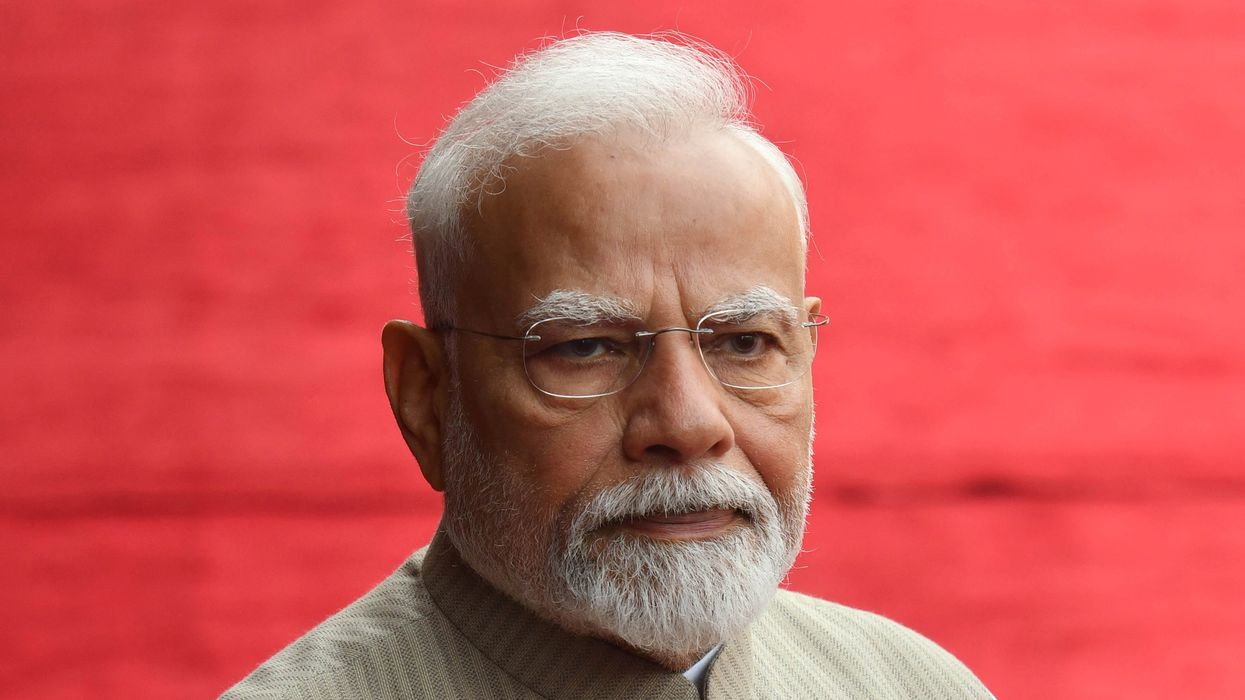PRIME MINISTER Narendra Modi on Monday said India would respond strongly to any future terrorist attack and would not tolerate "nuclear blackmail" in case of further conflict with Pakistan.
His remarks came after a weekend ceasefire appeared to be holding following four days of heavy fighting between the two sides. US president Donald Trump, who said he brokered the ceasefire, claimed on Monday that US intervention had prevented a "bad nuclear war".
"We stopped a nuclear conflict... millions of people could have been killed. So I'm very proud of that," Trump told reporters at the White House.
In his first address to the nation since hostilities began last Wednesday, Modi said Pakistan had chosen to attack instead of cooperating in the fight against "terrorism".
ALSO READ: Calm returns after India-Pakistan ceasefire, military talks planned
"If another terrorist attack against India is carried out, a strong response will be given," he said.
The conflict was triggered by an April 22 attack on tourists in Indian-administered Kashmir, which killed 26 civilians. India blamed Pakistan for backing the attack, a charge Islamabad denied.
India launched missile attacks early Wednesday on what it called "terrorist camps" in the Pakistan-administered part of Kashmir. This was followed by days of exchanges involving warplanes, drones, missiles and artillery. At least 60 people were killed on both sides.
"If Pakistan wants to survive, it will have to destroy its terror infrastructure," Modi said on Monday.
ALSO READ: India's response to Pahalgam attack was limited to terror targets: Vikram Doraiswami
"India will strike with precision and decisiveness against the terrorist groups thriving under the cover of nuclear blackmail.
"India's stand is very clear. Terror and talks cannot go together... Terror and trade cannot go together... Water and blood cannot flow together."
The Indian army said Monday night was the "first calm night in recent days" in the Kashmir region and along the western border with Pakistan.
The violence, the worst since the 1999 conflict, raised concerns that it could escalate into a wider war. Both sides accused each other of breaching the ceasefire hours after it was announced by Trump on social media on Saturday.
Top military officials from India and Pakistan held briefings on Sunday night, with each side claiming success and warning of retaliation if attacked again.
"We have delivered the promise we made to our people," Pakistan’s military spokesman Lieutenant General Ahmed Sharif Chaudhry said, calling it a "success on the battleground".
ALSO READ: What is Operation Sindoor, India's strikes in Pakistan?
"We have thus far exercised immense restraint so far and our actions have been focused, measured and non-escalatory," said Indian Lieutenant General Rajiv Ghai.
Pakistan claimed it had shot down five Indian fighter jets, a claim India has not responded to.
On Monday, people began returning to the town of Poonch in Indian-administered Kashmir, one of the worst-hit areas. Thousands of schools remained closed in Pakistan-administered Kashmir as local officials cleared debris from the fighting, said local official Naveed-Ul-Hassan Bukhari.
India reopened 32 airports that had been closed during the conflict, authorities said.
Terrorist activity has increased in Kashmir since 2019, when prime minister Narendra Modi’s government revoked the region’s limited autonomy and brought it under direct central control.
Kashmir, a Muslim-majority region, is claimed in full by both countries.
Senior military officers from both sides were reported to have spoken on Monday to support the ceasefire.
Abdul Basit at the S Rajaratnam School of International Studies in Singapore said the discussion would be about the "modalities of the ceasefire" and not about broader policy decisions.
The aim, he said, is to "avoid any miscalculations, because right now one spark could quickly move towards a nuclear catastrophe," he told AFP.
(With inputs from agencies)





